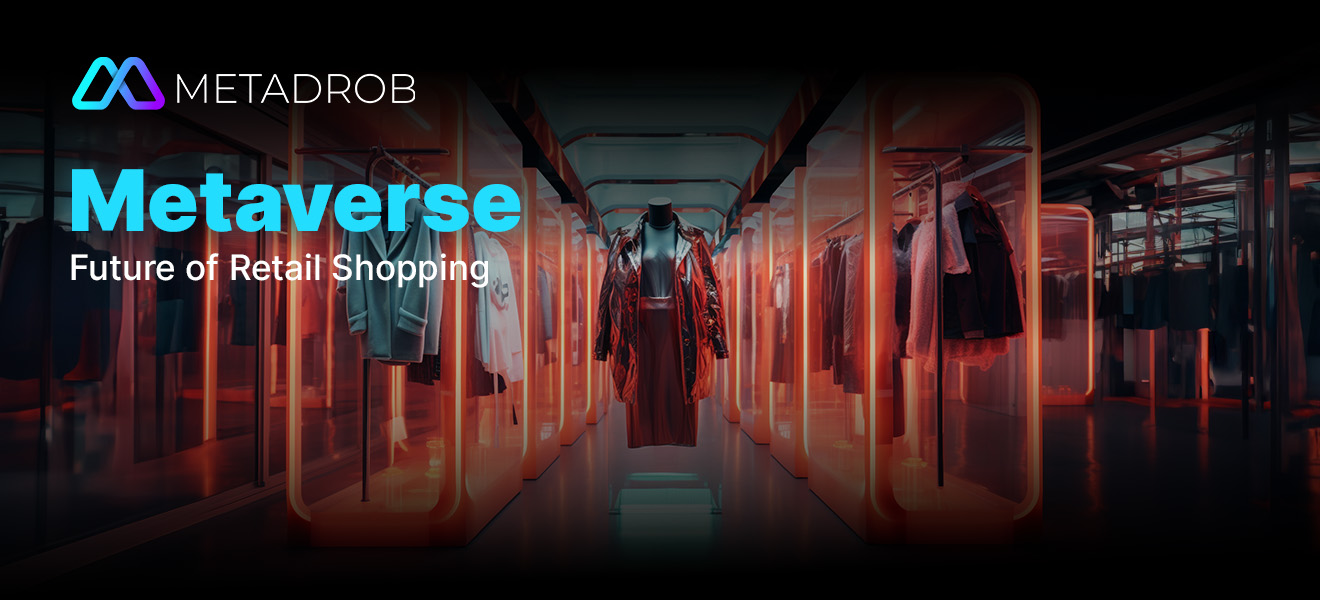Which Virtual Store Trends Will Dominate in the Coming Years?

In the field of e-commerce, businesses continue innovating methods to better serve customers and boost profits. Artificial intelligence, especially regarding personalization, has transformed the industry in recent years. One study found companies excelling at personalization attain up to 40% higher revenue than rivals. AI-driven customization enables retailers to tailor deals to each shopper depending on what they prefer, how they act, and what they’ve bought before. This article explores how AI-driven customization is redefining online shopping, improving customer experiences, and ultimately generating more sales.
Understanding AI-Driven Personalization
AI-driven personalization references employing artificial intelligence algorithms and machine learning strategies to examine consumer data and provide individualized experiences. By taking advantage of tremendous amounts of data collected from different sources – such as website interactions, purchase history, social media activities, and statistical facts – retailers can offer tailored search experiences that align with individual shoppers. This methodology commonly involves numerous pivotal factors:
- Information Gathering: Retailers assemble data from various contact points, incorporating online browsing behavior, history of transactions, and client feedback.
- Data Analysis: AI algorithms examine this information to spot patterns and inclinations in consumer conduct, preferences, and needs.
- Customized Recommendations: Supported by the understandings attained from data analysis, merchants can offer individualized product recommendations, content, and marketing messages that align with individual customer interests.
- Continuous Learning: AI systems always update with new information inputs, refining their algorithms to improve accuracy and applicability over time.
The Importance of Personalization in E-Commerce
Customization has become imperative for modern e-commerce in light of shifting consumer expectations and behaviors. Today’s digitally-savvy shoppers demand experiences tailored specifically for them, down to individual interests and past purchases. In fact, research shows nearly 8 in 10 customers are more amenable to purchases when brands offer personalized touch points throughout their journey.
Not only that, but customized content focused on a shopper’s unique preferences has proven far more engaging than generic outreach. Retailers able to gain a detailed understanding of clientele’s preferences stand to not only capture but maintain attention through individually curated recommendations and interactions. This enhanced engagement then translates to increased conversion rates, with personalized suggestions often prompting a 40% uplift in finalized sales over non-tailored promotions.
Yet, perhaps most significantly, thoughtful personalization nurtures a genuine connection between customers and the brands. When people feel seen and understood at an individual level, they naturally grow more loyal, returning not just once but repeatedly to trusted brands that recognize and respect their distinctiveness.
How AI-Driven Personalization Enhances Customer Experience
AI-driven personalization enhances customer experience in various ways:
1. Product Recommendations
One of the most common applications of AI in e-commerce is individualized product recommendations. By analyzing a customer’s extensive browsing history and varied purchase behavior, AI algorithms can propose items that align with their diverse interests.
- Recommendation Engines: Retailers utilize refined recommendation engines that examine user behavior to propose related products based on what a customer has formerly viewed or obtained.
- Dynamic Content: E-commerce websites can exhibit dynamic content tailored to particular users. For instance, if a customer frequently acquires athletic wear, the website can highlight new arrivals or promotions related to physical fitness apparel.
2. Customized Marketing Campaigns
AI-driven personalization allows retailers to create campaigns directed at specific customer segments.
- Email Marketing: Retailers can send emails based on customer preferences and behaviors. For example, if a customer frequently buys skincare products, they might receive emails featuring new skincare lines or exclusive discounts on related items.
- Retargeting Ads: AI algorithms can analyze user behavior across different platforms to deliver retargeted ads that showcase products customers have previously viewed or added to their cart but did not purchase.
3. Enhanced Consumer Support
AI-driven customization expands past merchandise suggestions; it additionally enhances consumer support experiences.
- Chatbots: Many e-commerce outlets use AI-powered chatbots to offer instant help to consumers. These chatbots can analyze prior interactions and purchase histories to offer customized help tailored to each consumer’s wants.
- Predictive Consumer Service: By analyzing data patterns, AI can foresee potential issues earlier than they arise. As an example, by figuring out what sorts of questions customers typically ask, it can offer better first-contact assistance.
4. Tailored User Experiences
Personalization permits retailers to create customized experiences that improve engagement:
- Website Customization: E-commerce platforms can modify website interfaces primarily based on user preferences. For instance, when customers return, they can see an entirely different homepage that features all the categories they view.
- User Profiles: Consumers can create profiles that store their preferences, sizes, and favorite merchandise. This data permits retailers to provide a smoother shopping experience by suggesting products that match particular profile data.
5. Enhanced Search Performance
AI-driven personalization enhances search functionality within e-commerce platforms.
- Smart Search Algorithms: AI algorithms analyze user conduct to enhance search outcomes primarily based on previous interactions.
- Voice Search Optimization: As voice search becomes considerably widespread, AI-driven personalization ensures that voice queries yield related outcomes primarily based on particular user preferences.
Challenges in Implementing AI-Driven Personalization
While the significant rewards of AI-assisted customization are clear, retailers face challenges that necessitate smart handling. Data privacy issues have become an increasingly pressing concern for consumers as awareness grows, requiring compliance with regulations like the General Data Protection Regulation while collecting and using personal data for customization initiatives.
Transparency in how information is handled is indispensable for cultivating trust with customers. Moreover, high-quality, well-integrated data from diverse origins, populating a cohesive system, underpins effective AI-driven customization. Poor or fragmented data can hinder such efforts.
A balanced approach, providing recommendations tailored to the individual without intruding into privacy or overstepping boundaries, is likewise crucial for sustaining positive client relationships, as over-personalization risks discomfort. Careful calibration is critical as retailers reap the benefits of AI while respecting consumer needs and preferences.
Future Trends in AI-Driven Personalization
As technologies continue advancing rapidly, many divergent trends will undoubtedly influence how AI personalizes e-commerce experiences moving forward. Hyper-personalization, leveraging real-time analytics and self-learning algorithms, will offer highly tailored experiences throughout each customer’s journey.
Predictive analytics will assume increasing importance in forecasting demands prior to explicit expressions, permitting stores to offer suggestions based on customer habits. Augmented realities within digital marketplaces will allow customers to not only get customized suggestions but also get an idea of how the product will fit into their lives.
The Role of Machine Learning in Personalization
Machine learning algorithms excel at recognizing patterns within large datasets allowing retailers to identify trends in consumer behavior over time accurately. This capability enables businesses not only to understand what products are popular but also to predict future buying habits based on historical data analysis.
Unlike traditional methods that rely on static rules or pre-defined criteria for segmentation, machine learning models continuously adapt as new information becomes available, ensuring recommendations remain relevant even as consumer preferences evolve rapidly over time!
Integrating Personalization Across Channels
To optimize the impact of AI-driven personalization, retailers must seamlessly integrate strategic personalization across every point of contact with consumers. An omnichannel approach ensures harmonization between websites, mobile apps, social networks, and email correspondence, smoothly transferring customers between physical and digital realities while maintaining a cohesive message at each stage of every interaction.
Unified profiles combine insights extracted from disparate data sources, granting brands comprehensive awareness of individuals’ journeys. This allows merchants to tailor experiences appropriately regardless of the channel used during the engagement.
Delving deeper into personalized interactions aids identification of opportunities to judiciously cross-promote merchandise and services across diverse platforms in a targeted manner. Strategic recommendations precisely aligned with a customer’s preferences and past behaviors serve to maximize pertinent exposure. It thereby promotes additional purchases naturally inspired through relevant suggestions.
Measuring Success of Personalization Efforts
To evaluate the effectiveness of implemented strategies, e-commerce businesses should track key performance indicators (KPIs) associated with directly related outcomes stemming from these initiatives:
1. Conversion Rates
Monitoring changes in conversion rates following implementation provides insight into how well-personalized recommendations resonate among target audiences, indicating whether adjustments may be needed to refine the approach to further optimize results achieved overall!
2. Average Order Value (AOV)
Tracking AOV helps assess the impact personalized suggestions have had upon increasing revenue generated per transaction—indicating effectiveness in driving additional sales through relevant cross-selling opportunities identified earlier during the analysis phase!
3. Customer Retention Rates
Analyzing retention rates, post-interaction reveals whether enhanced experiences fostered loyalty among shoppers returning repeatedly over time – a strong indicator of long-term success stemming directly attributable efforts made towards enhancing overall satisfaction levels experienced throughout the journey taken together!
Want To Get the Best in Class AI-Driven Personalization For Your Virtual Store Platform? Get Started Today!
With Metadrob’s AI-driven personalization, businesses can offer tailored product recommendations based on individual browsing and purchase history. This feature allows customers to discover products that align with their preferences, creating a more engaging shopping experience.
Additionally, with Metadrob’s Virtual Try-On technology, retailers can enable users to visualize how products will look on them, further personalizing the shopping journey.
CLAIM FREE DEMO with Metadrob today to learn more about creating a virtual store platform!
Connect with Metadrob
Ready to take the first step towards unlocking opportunities, realizing goals, and embracing innovation? We're here and eager to connect.

+91 966-004-4020






